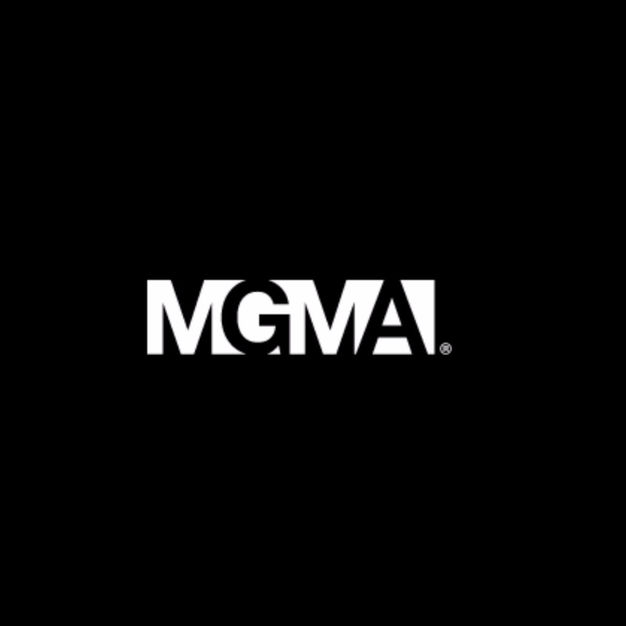
MGMA Podcasts
MGMA
Medical Group Management Association (MGMA) equips practice administrators and executives with the knowledge and tools to head high-performance physician group practices in a complex and evolving healthcare environment.
- 28 minutes 15 secondsMindful Medicine: Dr. Anjali Rajpal on Transforming Care Through Mindfulness and Artistry
In this episode of the MGMA Insights podcast, Daniel Williams sits down with Dr. Anjali Rajpal, a leading cosmetic dentist and founder of Beverly Hills Dental Arts. Dr. Rajpal shares her journey into healthcare, her passion for art and mindfulness, and how she is redefining the patient experience through a holistic, patient-centered approach.
Main Points:
- Dr. Rajpal's Path to Dentistry: Blending Medicine, Art, and a Passion for Hands-On Work
- Creating a Unique Dental Practice: Incorporating Art, Mindfulness, and a Soothing Environment
- Prioritizing Patient-Centered Care: Building Trust, Leveraging Technology, and Minimizing Pharmaceutical Interventions
- The Power of Mindfulness: Dr. Rajpal's Personal Journey and Integrating it into Her Practice
- Deepak Chopra's Influence: Insights from Serving on a Panel with the Renowned Mindfulness Advocate
Sources and Resources Mentioned:
Watch the interview on YouTube here
CareCredit
Are your patients concerned about out-of-pocket costs? Is your practice looking for a way to help address those concerns and improve the patient experience? Then, you may want to consider offering the CareCredit credit card as a payment option. For over thirty-five years, CareCredit, a Synchrony solution, has been offering patients a way to pay for health and wellness expenses not covered by insurance. CareCredit can seamlessly integrate with your business and offer a valuable financing option for your patients so they can pay for services or products over time to help fit their budget. To learn more about how CareCredit works for you and your patients, visit www.carecredit.com/mgmapodcast.NextGen
Looking to transform your healthcare practice with AI? NextGen Healthcare is leading the way by leveraging artificial intelligence. It is helping practices improve efficiency, streamline workflows, and enhance patient outcomes. From predictive analytics to automating routine tasks, NextGen Healthcare's AI solutions are revolutionizing the delivery of care. Don't miss out on the future of healthcare innovation. Visit https://www.nextgen.com/ today to learn how NextGen Healthcare can help you drive efficiency and elevate patient care.25 December 2024, 5:00 am - 17 minutes 25 secondsMGMA Week in Review: Strategic Planning Pitfalls, Healthcare Tensions, and Nursing Compensation Trends
In this final MGMA Week in Review episode of 2024, hosts Daniel Williams and Colleen Luckett discuss key healthcare stories, including strategic planning mistakes, the killing of a healthcare CEO, and the latest data on nurse compensation trends. As the year comes to a close, this episode provides valuable insights and perspectives to consider as the industry looks ahead.
Topics and Links:
- Don't Make These Strategic Planning Mistakes from Physicians Practice
- Indictment of Luigi Mangione for Killing of United Healthcare CEO from Becker's Hospital Review
- 2025 Nurse Compensation Trends from MGMA Stat
- The Impact of Long COVID on Employment from Medical Economics
- PBM Lobby Fights Back Against Reforms in End-of-Year Healthcare Package from Fierce Healthcare
This is our year-end episode of the week in review podcast and we wish you all a safe and happy holidays and new year.
CareCredit
Are your patients concerned about out-of-pocket costs? Is your practice looking for a way to help address those concerns and improve the patient experience? Then, you may want to consider offering the CareCredit credit card as a payment option. For over thirty-five years, CareCredit, a Synchrony solution, has been offering patients a way to pay for health and wellness expenses not covered by insurance. CareCredit can seamlessly integrate with your business and offer a valuable financing option for your patients so they can pay for services or products over time to help fit their budget. To learn more about how CareCredit works for you and your patients, visit www.carecredit.com/mgmapodcast.NextGen
Looking to transform your healthcare practice with AI? NextGen Healthcare is leading the way by leveraging artificial intelligence. It is helping practices improve efficiency, streamline workflows, and enhance patient outcomes. From predictive analytics to automating routine tasks, NextGen Healthcare's AI solutions are revolutionizing the delivery of care. Don't miss out on the future of healthcare innovation. Visit https://www.nextgen.com/ today to learn how NextGen Healthcare can help you drive efficiency and elevate patient care.20 December 2024, 5:00 am - 25 minutes 43 secondsMindful Medicine: Finding Resilience on Everest with Dr. Mimi Zieman
Welcome to Mindful Medicine, where we explore the intersection of mindfulness, health, and transformative experiences. In this episode, Daniel Williams, Senior Editor at MGMA and host of the MGMA Insights Podcast, speaks with Dr. Mimi Zieman—an OB/GYN, adventurer, and author of the memoir Tap Dancing on Everest. Dr. Zieman’s story takes us from her beginnings in New York City to her pivotal role as the expedition doctor on an unaided climb of Everest. She shares profound insights into the healing power of nature, the courage to embrace the unknown, and lessons from her multifaceted career in medicine, writing, and beyond.
Key Discussion Points (with Timestamps):- [00:01:00] Introduction to Dr. Mimi Zieman
Dr. Zieman’s background as an OB/GYN, author, and adventurer, and her unique journey from New York City to the peaks of Everest. - [00:02:30] Discovering a Love for Mountains
How a college field biology lab in Colorado sparked her lifelong passion for the mountains and adventure. - [00:05:30] Highlights from Dr. Zieman’s Medical Career
Her work in academic medicine, leadership at Emory’s family planning program, and transitioning into consulting and creative writing. - [00:10:00] Writing Tap Dancing on Everest
The inspiration behind her memoir, how the title evolved, and the pivotal moment she literally danced on Everest. - [00:13:30] Role as Expedition Doctor on Everest
Reflections on serving as the medical officer during an unaided climb of Everest, supporting the climbers while managing extreme conditions. - [00:16:30] Influence of Her Father’s Story
How her father’s experience as a Holocaust survivor shaped her identity, perspective on resilience, and approach to both medicine and life. - [00:18:00] Healing Power of Nature and Solitude
Insights on how extreme natural environments and mindfulness practices influenced her understanding of health and well-being. - [00:20:30] Facing Uncertainty in Life and Leadership
Dr. Zieman’s advice for medical leaders on embracing challenges and fostering growth through uncertainty. - [00:23:00] Outro
What’s next for Dr. Zieman, including upcoming writing projects and creative endeavors.
Resources and Links:
- Tap Dancing on Everest: Purchase the book here.
- Dr. Mimi Zieman’s Newsletter: Explore Medicine, Mountains, and More on Substack.
- Managing Contraception (17th Edition): Find out more.
- Learn about the MGMA community and more episodes of Mindful Medicine: MGMA Insights Podcast.
CareCredit
Are your patients concerned about out-of-pocket costs? Is your practice looking for a way to help address those concerns and improve the patient experience? Then, you may want to consider offering the CareCredit credit card as a payment option. For over thirty-five years, CareCredit, a Synchrony solution, has been offering patients a way to pay for health and wellness expenses not covered by insurance. CareCredit can seamlessly integrate with your business and offer a valuable financing option for your patients so they can pay for services or products over time to help fit their budget. To learn more about how CareCredit works for you and your patients, visit www.carecredit.com/mgmapodcast.NextGen
Looking to transform your healthcare practice with AI? NextGen Healthcare is leading the way by leveraging artificial intelligence. It is helping practices improve efficiency, streamline workflows, and enhance patient outcomes. From predictive analytics to automating routine tasks, NextGen Healthcare's AI solutions are revolutionizing the delivery of care. Don't miss out on the future of healthcare innovation. Visit https://www.nextgen.com/ today to learn how NextGen Healthcare can help you drive efficiency and elevate patient care.19 December 2024, 10:01 pm - [00:01:00] Introduction to Dr. Mimi Zieman
- 25 minutes 12 secondsMGMA Insights: DeDe Kelley on 2025 Healthcare Hiring Trends
Welcome to the MGMA Insights podcast! Join host Daniel Williams as he sits down with DeDe Kelley, Director of Talent Acquisition at Marsh McLennan Agency’s National HR Consulting Services. In this episode, they discuss the pressing hiring challenges healthcare organizations face in 2025, including leveraging AI, fostering workplace culture in remote settings, and addressing mental health and well-being. With practical strategies for recruitment and retention, this episode offers valuable insights for healthcare leaders navigating a competitive job market.
In this Episode:
- [0:01] Healthcare Hiring Trends for 2025
DeDe sets the stage for 2025 with hiring trends influenced by AI, flexibility, and the ongoing evolution of work-life balance in healthcare. - [4:14] The Role of Remote Work and Telehealth
Learn how remote roles expand the candidate pool, offering opportunities to hire skilled professionals from across the country. - [7:36] Integrating AI in Recruitment
DeDe discusses how AI tools are transforming hiring processes, from unbiased resume screening to virtual interviews with avatars. - [11:32] Fostering Workplace Culture in a Remote Environment
Explore strategies to maintain a strong company culture through virtual touchpoints, empathetic communication, and technology integration. - [15:16] Addressing Mental Health and Well-being
DeDe emphasizes the importance of normalizing mental health discussions and offering supportive programs like EAPs, mental health days, and on-site counselors. - [21:19] Effective Strategies for Attracting and Retaining Talent
Discover practical advice for competitive compensation, career growth opportunities, and creating a compelling employer brand.
Sources and Links:
- MMA’s 2024 Employee Health & Benefits Trends report
- Addressing mental health and well-being in today’s health care organizations
- Absence, disability, and leave trends in health care
- Explore MGMA’s Career Center
- Join MGMA Stat Polls
- Sign Up for MGMA Insights Newsletter
CareCredit
Are your patients concerned about out-of-pocket costs? Is your practice looking for a way to help address those concerns and improve the patient experience? Then, you may want to consider offering the CareCredit credit card as a payment option. For over thirty-five years, CareCredit, a Synchrony solution, has been offering patients a way to pay for health and wellness expenses not covered by insurance. CareCredit can seamlessly integrate with your business and offer a valuable financing option for your patients so they can pay for services or products over time to help fit their budget. To learn more about how CareCredit works for you and your patients, visit www.carecredit.com/mgmapodcast.NextGen
Looking to transform your healthcare practice with AI? NextGen Healthcare is leading the way by leveraging artificial intelligence. It is helping practices improve efficiency, streamline workflows, and enhance patient outcomes. From predictive analytics to automating routine tasks, NextGen Healthcare's AI solutions are revolutionizing the delivery of care. Don't miss out on the future of healthcare innovation. Visit https://www.nextgen.com/ today to learn how NextGen Healthcare can help you drive efficiency and elevate patient care.16 December 2024, 5:07 pm - [0:01] Healthcare Hiring Trends for 2025
- 17 minutes 9 secondsMGMA Week in Review: Bipartisan Healthcare Changes, AI Insights, and Virtual Assistant Strategies
Welcome to the MGMA Week in Review podcast! Hosted by Daniel Williams, Senior Editor at MGMA, and Colleen Luckett, MGMA writer and editor, this episode explores bipartisan efforts to reform pharmacy benefit managers, to the role of AI in clinical care, and key considerations for physicians debating a shift from independent practice, we bring you insights to help navigate the evolving healthcare landscape.
Links to Articles Discussed
- Warren and Hawley Introduce Bipartisan PBM Bill – Fierce Healthcare
- Staffing Shortages? Time to Consider Virtual Assistants – Physician’s Practice
- Eight Key Insights on AI in Clinical Care – Health Leaders
- Six Questions for Physicians Considering a Transition from Independent Practice – Medical Economics
- MGMA Stat Poll Results – Structured Processes for Technology Selection
Stay Connected
Here are five valuable resources on the MGMA website that can help members enhance their skills and improve their job performance:
- MGMA DataDive - This benchmarking tool allows professionals to analyze provider compensation, cost and revenue, and practice operations, helping practices identify areas for improvement and success.
- MGMA Advance - A member-exclusive benefit that offers a personalized professional development pathway based on individual education needs, helping members stay current in their field.
- Medical Practice Staffing Solutions Playbook - This playbook provides insights and strategies for effective recruitment and retention of staff, essential for maintaining a well-functioning practice.
- Healthcare Project Management Toolkit - A toolkit designed to help practice leaders plan and streamline projects effectively, ensuring that initiatives are executed with purpose and efficiency.
- Member Benefits Guide - This guide outlines the various benefits available to MGMA members, including access to resources, education, and networking opportunities that can enhance professional growth.
CareCredit
Are your patients concerned about out-of-pocket costs? Is your practice looking for a way to help address those concerns and improve the patient experience? Then, you may want to consider offering the CareCredit credit card as a payment option. For over thirty-five years, CareCredit, a Synchrony solution, has been offering patients a way to pay for health and wellness expenses not covered by insurance. CareCredit can seamlessly integrate with your business and offer a valuable financing option for your patients so they can pay for services or products over time to help fit their budget. To learn more about how CareCredit works for you and your patients, visit www.carecredit.com/mgmapodcast.NextGen
Looking to transform your healthcare practice with AI? NextGen Healthcare is leading the way by leveraging artificial intelligence. It is helping practices improve efficiency, streamline workflows, and enhance patient outcomes. From predictive analytics to automating routine tasks, NextGen Healthcare's AI solutions are revolutionizing the delivery of care. Don't miss out on the future of healthcare innovation. Visit https://www.nextgen.com/ today to learn how NextGen Healthcare can help you drive efficiency and elevate patient care.13 December 2024, 5:00 am - 27 minutes 48 secondsMGMA Member Spotlight Podcast: Navigating the C-Suite path with Veronica Villareal
In this episode of the MGMA Member Spotlight Podcast, host Daniel Williams sits down with Veronica Villarreal, Chief Ambulatory Officer at DHR Health Clinics and author of the new book C-Suite Bound: How Self-Discovery Leads to Ultimate Success. Villarreal shares her inspiring journey to the C-suite, offering valuable insights and actionable advice for medical practice leaders aspiring to reach the executive level.
Key Takeaways:
Defining Moments and the Spark for Healthcare
Villarreal's transformative study abroad experience in Morocco opened her eyes to a world beyond her immediate surroundings, inspiring her to focus on making a broader impact. While spending a night in the Sahara Desert, she learned how the guides had picked up multiple languages from tourists over the years. This transformative experience inspired Villarreal to focus her career on making a broader impact. As she reflects, "So that was really what made me realize there's more in this world that I want to experience, there's more that I want to do to impact others.”Navigating the Path to the C-Suite
Villarreal emphasizes the importance of staying true to oneself, even as one climbs the corporate ladder. "Stay true to yourself. That's huge. I really stress that. Why? Because it's so much harder when you're trying to be someone you're not, or when, or when you're trying to, you know, mimic someone else's career goals."Patience and focus were also key qualities that Villarreal cultivated along the way. "Patience, patience is key ... We're trying to get somewhere as fast as we can, because we see others get there that fast. There's gonna be a road for you, and it's your road. It's not my road."
The Power of Lifelong Learning
As Chief Ambulatory Officer, Villarreal recognizes the importance of lifelong learning in the ever-evolving healthcare landscape. "I do believe that if you're in healthcare, you have to be a lifelong learner to stay in the field. There's now new AI technology. How do we get administrative tasks that that burden off the physicians? How do we get AI scribes? Is a virtual scribe work. There's so many things also in revenue cycles."Leading Diverse, Multi-Generational Teams
Villarreal emphasizes the power of empathy when leading a diverse, multi-generational team. "Don't try to or put everyone in your box, because that's never going to work. We're all different, all of us, even in the same generations ... Let's all try to get to know each other a little bit better so we can understand what triggers us, what makes us tick, what are what are they passionate about? What am I passionate about?"Insights from "C-Suite Bound"
In her book C-Suite Bound: How Self-Discovery Leads to Ultimate Success, Villarreal shares her personal experiences and lessons learned on the path to the C-suite. As she explains, "This book is to tell you the don'ts and do's and what I've experienced, what my colleagues have experienced, navigating to get to the C suite and being in the C suite. It's that type of book to let people know that it's possible for anyone."Resources:
- Visit the DHR Health website to learn more about their services and vision.
- Purchase Villareal's new book C-Suite Bound: How Self-Discovery Leads to Ultimate Success
- Visit Veronica Villarreal on LinkedIn
CareCredit
Are your patients concerned about out-of-pocket costs? Is your practice looking for a way to help address those concerns and improve the patient experience? Then, you may want to consider offering the CareCredit credit card as a payment option. For over thirty-five years, CareCredit, a Synchrony solution, has been offering patients a way to pay for health and wellness expenses not covered by insurance. CareCredit can seamlessly integrate with your business and offer a valuable financing option for your patients so they can pay for services or products over time to help fit their budget. To learn more about how CareCredit works for you and your patients, visit www.carecredit.com/mgmapodcast.NextGen
Looking to transform your healthcare practice with AI? NextGen Healthcare is leading the way by leveraging artificial intelligence. It is helping practices improve efficiency, streamline workflows, and enhance patient outcomes. From predictive analytics to automating routine tasks, NextGen Healthcare's AI solutions are revolutionizing the delivery of care. Don't miss out on the future of healthcare innovation. Visit https://www.nextgen.com/ today to learn how NextGen Healthcare can help you drive efficiency and elevate patient care.12 December 2024, 3:40 pm - 23 minutes 3 secondsMGMA Business Solutions: Beyond EHRs – The Future of Healthcare Automation with Dr. Michael Blackman
In this episode of the MGMA Business Solutions Podcast, host Daniel Williams sits down with Dr. Michael Blackman, Chief Medical Officer at Greenway Health, to explore how advanced automation and evolving technologies are reshaping the healthcare landscape. Dr. Blackman provides insights into emerging tools like AI-powered documentation, the challenges of adoption, and the potential for healthcare automation to reduce provider burnout and enhance patient care.
Key Points with Timestamps- [00:00] Introduction
- Welcome and reintroduction of Dr. Blackman, a repeat guest on the podcast, and his recent appearance at the MGMA Leaders Conference.
- [01:41] Dr. Blackman’s Journey in Healthcare
- Transition from clinical practice to technology, leveraging his dual expertise in medicine and information systems to improve electronic health records (EHR).
- [04:30] Greenway Health’s Vision for Automation
- Greenway’s focus on the ambulatory care space and their goal to empower practices through the “automated healthcare practice.”
- [06:39] Evolving EHRs: Ambient Documentation
- How ambient voice technology automates clinical note-taking, saving up to two hours per day for providers while improving accuracy.
- [10:37] Enhancing the Patient Experience
- Patient benefits of automation, including reduced physician distractions during visits and a more personalized experience.
- [13:08] Interoperability and Data Sharing
- Challenges and improvements in seamless data sharing across healthcare systems to enhance collaboration and reduce redundancies.
- [17:00] AI and Emerging Technologies
- Discussion of tools like Greenway Clinical Assist and the broader impact of AI, robotics, and predictive analytics on healthcare.
- [20:00] Adoption Challenges
- Barriers to implementing advanced automation and strategies for overcoming resistance to change.
Resources and Links
- Greenway Health: Learn more about Greenway’s solutions and vision for healthcare automation. Visit Greenway Health
- Ambient Documentation Technology: Explore how AI-powered tools are transforming clinical workflows. Read More
- JAMA Network Study on AI Diagnostics: Insights into AI’s role in improving diagnostic accuracy. View Study
- MGMA Resources on Provider Burnout: Tips and strategies for reducing burnout in healthcare practices. Visit MGMA
9 December 2024, 5:00 am - [00:00] Introduction
- 16 minutes 18 secondsMGMA Week in Review: Advocate Health's Value-Based Care Success, Pharmacy Chain Closures, and Addressing Violence in Healthcare
This MGMA Week in Review podcast covers a range of important healthcare topics, including Advocate Health's achievements in value-based care, the impact of pharmacy chain closures, and strategies to reduce workplace violence in healthcare settings.
Key Highlights:
- Advocate Health Saves $135.7 Million Through Value-Based Care Programs
Source: Health Leaders article on Advocate Health's success in the Medicare Shared Savings Program and ACO REACH - Independent Pharmacies Fill Gaps Left by Major Chain Closures
Source: Associated Press article on the rise of independent pharmacies - Proactive Strategies to Reduce Violence in Healthcare Workplaces
Source: Chief Healthcare Executive article on insights from Kimberly Urbanek, Endeavor Health System Manager of Public Safety Training - Addressing Modern Social Epidemics: Loneliness, Burnout, and Social Media Toxicity
Source: Physicians Practice article by Neil Baum, MD
- MGMA Stat Poll Reveals Trends in Patient Wait Times
Source: MGMA Stat poll data
CareCredit
Are your patients concerned about out-of-pocket costs? Is your practice looking for a way to help address those concerns and improve the patient experience? Then, you may want to consider offering the CareCredit credit card as a payment option. For over thirty-five years, CareCredit, a Synchrony solution, has been offering patients a way to pay for health and wellness expenses not covered by insurance. CareCredit can seamlessly integrate with your business and offer a valuable financing option for your patients so they can pay for services or products over time to help fit their budget. To learn more about how CareCredit works for you and your patients, visit www.carecredit.com/mgmapodcast.NextGen
Looking to transform your healthcare practice with AI? NextGen Healthcare is leading the way by leveraging artificial intelligence. It is helping practices improve efficiency, streamline workflows, and enhance patient outcomes. From predictive analytics to automating routine tasks, NextGen Healthcare's AI solutions are revolutionizing the delivery of care. Don't miss out on the future of healthcare innovation. Visit https://www.nextgen.com/ today to learn how NextGen Healthcare can help you drive efficiency and elevate patient care.6 December 2024, 5:00 am - Advocate Health Saves $135.7 Million Through Value-Based Care Programs
- 25 minutes 42 secondsMGMA Business Solutions: Claude Royster on Improving the Patient Financial Experience
In this episode of the MGMA Business Solutions Podcast, host Daniel Williams sits down with Claude Royster, Vice President and General Manager of Health and Wellness at Care Credit. They discuss how Care Credit can help medical practices and their patients navigate the complexities of healthcare financing, especially as annual deductibles and FSA resets approach. Royster shares insights on the importance of educating patients on their financial options and the role practices can play in facilitating those conversations.
Key Takeaways:
- Patients often underestimate their annual healthcare costs, which can lead to delayed or foregone care. Care Credit aims to educate patients on the lifetime costs of healthcare and provide financing options to make care more accessible.
- "We have continued to work towards educating both patients and providers, but also really give products that give that optionality to patients to be able to make choices now and get the care that they need when they need it."
- Practices can partner with Care Credit to offer a "frictionless" financing experience for patients, where they can pre-qualify for credit in seconds using a QR code or mobile app.
- This benefits practices by reducing administrative burdens, improving cash flow, and allowing them to focus on patient care rather than collections.
- Care Credit measures success through metrics like patient satisfaction, revenue growth, and expense reduction for practices.
Resources:
- Visit www.carecredit.com to learn more about Care Credit's services and resources for healthcare providers and patients.
Sources Referenced:
- 2023 Employer Health Benefits Survey. Section 1: Cost of Health Insurance. Kaiser Family Foundation. October 18, 2023.
- Americans’ Challenges with Health Care Costs. Kaiser Family Foundation. March 01, 2024.
- KFF Survey Shows Complexity, Red Tape, Denials, Confusion Rivals Affordability as a Problem for Insured Consumers, With Some Saying It Caused Them to Go Without or Delay Care. Kaiser Family Foundation. June 15, 2023.
- Healthcare Journey Research Consumers and Providers. Synchrony. 2023. CareCredit is a Synchrony solution.
- 2022 CareCredit Lifetime of Healthcare Costs Research. CareCredit is a Synchrony solution.
- Financial Health Literacy and the Shared Decision-Making Process in Healthcare. International Journal of Environmental Research and Public Health. June 19, 2022.
Disclosure: This content is subject to change without notice and offered for informational use only. You are urged to consult with your individual business, financial, legal, tax and/or other advisors with respect to any information presented. Synchrony and any of its affiliates, including CareCredit, (collectively, “Synchrony”) makes no representations or warranties regarding this content and accept no liability for any loss or harm arising from the use of the information provided. All statements and opinions in the podcast are the sole opinions of the guest. Your receipt of this material constitutes your acceptance of these terms and conditions.
CareCredit
Are your patients concerned about out-of-pocket costs? Is your practice looking for a way to help address those concerns and improve the patient experience? Then, you may want to consider offering the CareCredit credit card as a payment option. For over thirty-five years, CareCredit, a Synchrony solution, has been offering patients a way to pay for health and wellness expenses not covered by insurance. CareCredit can seamlessly integrate with your business and offer a valuable financing option for your patients so they can pay for services or products over time to help fit their budget. To learn more about how CareCredit works for you and your patients, visit www.carecredit.com/mgmapodcast.NextGen
Looking to transform your healthcare practice with AI? NextGen Healthcare is leading the way by leveraging artificial intelligence. It is helping practices improve efficiency, streamline workflows, and enhance patient outcomes. From predictive analytics to automating routine tasks, NextGen Healthcare's AI solutions are revolutionizing the delivery of care. Don't miss out on the future of healthcare innovation. Visit https://www.nextgen.com/ today to learn how NextGen Healthcare can help you drive efficiency and elevate patient care.4 December 2024, 6:00 am - 20 minutes 50 secondsMGMA Business Solutions: Leveraging Technology and Partnerships for Healthcare Resilience with Dr. Anthony Mazzarelli
In this episode of the MGMA Business Solutions Podcast, host Daniel Williams sits down with Dr. Anthony Mazzarelli, co-president and CEO of Cooper University Healthcare. Dr. Mazzarelli shares his insights on the unique challenges facing the healthcare industry, the role of technology in enhancing patient care and operational efficiency, and Cooper's approach to building resilience in a changing landscape. From addressing burnout and staffing shortages to exploring digital transformation, this conversation offers valuable perspectives for healthcare leaders navigating the evolving industry.
Key Takeaways:
- Addressing Burnout and Staffing Challenges:
Dr. Mazzarelli discusses the post-pandemic "war for talent" and strategies to recruit and retain healthcare workers, including innovative wellness programs and creating more engaging work environments. - Leveraging Technology for Efficiency:
Cooper University Health Care is using tools like virtual nursing and AI-powered systems, such as Dragon Ambient Experience (DAX), to reduce administrative burdens and enhance patient care. - Financial Sustainability in Healthcare:
By valuing employees, reducing turnover, and forming strategic partnerships, Cooper focuses on maintaining quality care while addressing financial pressures. - The Future of Healthcare Technology:
Dr. Mazzarelli envisions advancements in eliminating documentation burdens, improving chronic disease management, and enhancing real-time decision support to deliver consistent, evidence-based care.
Links and Resources:
2 December 2024, 5:00 am - Addressing Burnout and Staffing Challenges:
- 18 minutes 55 secondsMGMA Week in Review: Ransomware Risks, Physician Onboarding, and Combatting Workplace Conflict
Welcome to this week’s MGMA Week in Review Podcast! Hosts Daniel Williams and Colleen Luckett break down the most important stories in healthcare management. This episode covers the latest ransomware threats targeting healthcare, practical advice for onboarding new physicians, strategies for managing workplace conflict, and preparing your medical practice for 2025.
Episode Highlights:- Ransomware Attacks and Healthcare Vulnerabilities
- Colleen unpacks the findings from the 2024 Q3 Cyber Threat Report by Corvus, revealing a 12.8% rise in ransomware attacks targeting healthcare in Q3. Key vulnerabilities include outdated VPNs and lack of multi-factor authentication (MFA).
- Resource: HIPAA Journal: Ransomware Groups Exploiting VPNs for Initial Access
- Transitioning from Residency to Practice
- Daniel discusses key takeaways from the AMA on supporting physicians as they transition into practice, including goal setting, mentorship, and comprehensive onboarding.
- Resource: AMA: Transitioning to Practice
- Biden Administration’s Proposed Medicare and Medicaid Changes
- Colleen dives into the CMS proposal to expand Medicare Part D and Medicaid coverage to include anti-obesity medications starting in 2026, addressing obesity as a disease and touching on broader healthcare reforms.
- Resource: Fierce Healthcare: CMS Proposal Expanding Medicare and Medicaid
- Managing Workplace Conflict
- Daniel highlights advice from Physicians Practice on de-escalating workplace tensions, including fostering self-regulation, empathetic communication, and team-building strategies.
- Resource: Physicians Practice: Messy Moments—Dial Down the Drama
- Planning Your Practice Strategy for 2025
- Colleen outlines strategic advice from Nick Hernandez on competitive analysis, marketing strategies, and incorporating market demographics to stay ahead in 2025.
- Resource: Physicians Practice: Are You Working on a 2025 Strategy?
Closing Thoughts:
As Daniel and Colleen discuss, the Thanksgiving holiday reminds us of the importance of connection, renewal, and balance—qualities that extend to the workplace. However you celebrated, we hope you found time to recharge and reflect. See you next week for more insights!Don’t forget to subscribe to the MGMA Week in Review Podcast for weekly updates on healthcare management.
CareCredit
Are your patients concerned about out-of-pocket costs? Is your practice looking for a way to help address those concerns and improve the patient experience? Then, you may want to consider offering the CareCredit credit card as a payment option. For over thirty-five years, CareCredit, a Synchrony solution, has been offering patients a way to pay for health and wellness expenses not covered by insurance. CareCredit can seamlessly integrate with your business and offer a valuable financing option for your patients so they can pay for services or products over time to help fit their budget. To learn more about how CareCredit works for you and your patients, visit www.carecredit.com/mgmapodcast.NextGen
Looking to transform your healthcare practice with AI? NextGen Healthcare is leading the way by leveraging artificial intelligence. It is helping practices improve efficiency, streamline workflows, and enhance patient outcomes. From predictive analytics to automating routine tasks, NextGen Healthcare's AI solutions are revolutionizing the delivery of care. Don't miss out on the future of healthcare innovation. Visit https://www.nextgen.com/ today to learn how NextGen Healthcare can help you drive efficiency and elevate patient care.29 November 2024, 5:00 am - Ransomware Attacks and Healthcare Vulnerabilities
- More Episodes? Get the App
Your feedback is valuable to us. Should you encounter any bugs, glitches, lack of functionality or other problems, please email us on [email protected] or join Moon.FM Telegram Group where you can talk directly to the dev team who are happy to answer any queries.
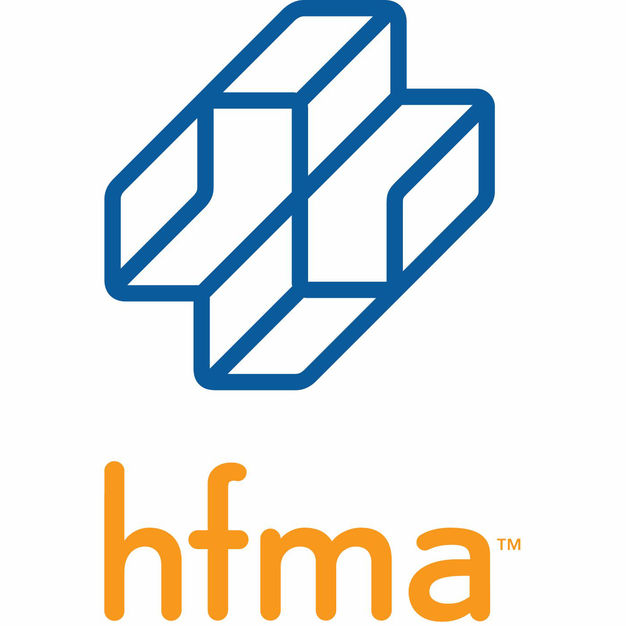 HFMA's Voices in Healthcare Finance
HFMA's Voices in Healthcare Finance
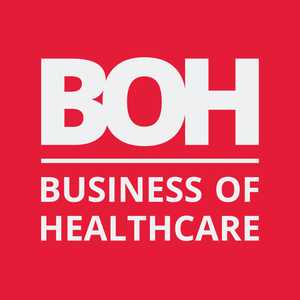 Business of Healthcare
Business of Healthcare
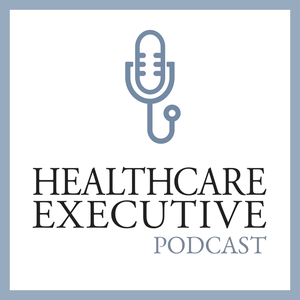 Healthcare Executive Podcast
Healthcare Executive Podcast
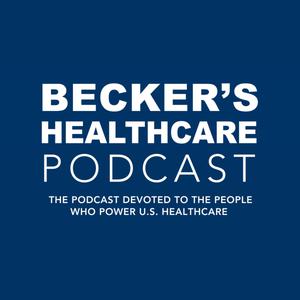 Becker’s Healthcare Podcast
Becker’s Healthcare Podcast
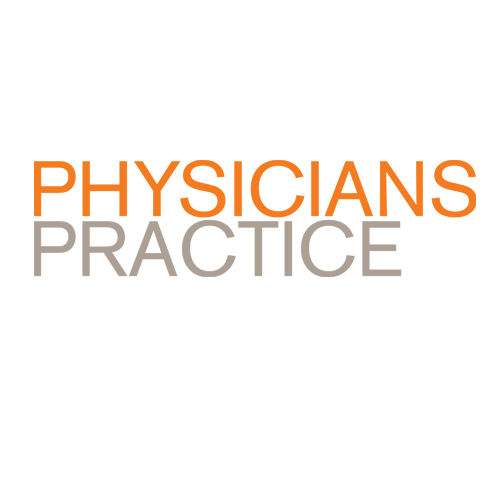 Physicians Practice Videos
Physicians Practice Videos
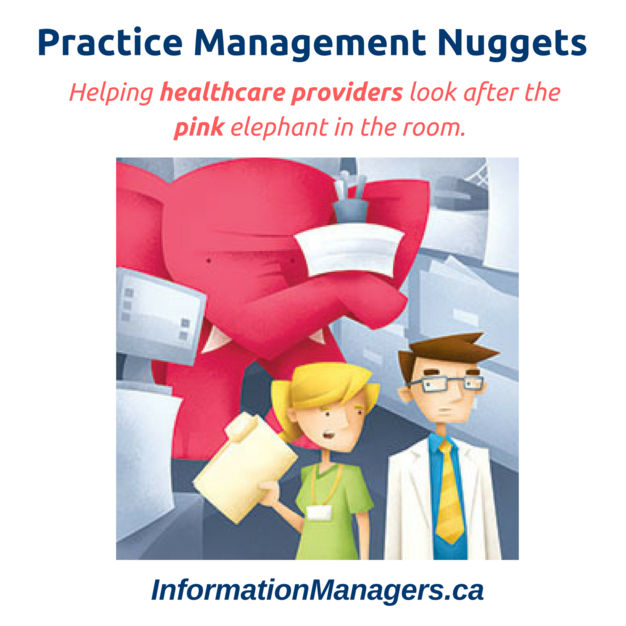 Practice Management Nuggets
Practice Management Nuggets